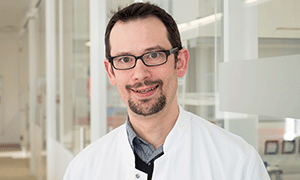Mitochondrial Dysfunctions in Cardiomyopathies
Mitochondria are surrounded by two membranes, which play an essential role in many aspects of mitochondrial physiology. The inner membrane of mitochondria forms cristae structures, which harbor the respiratory chain. The respiratory chain converts the flux of electrons from the oxidative metabolism into a proton gradient that fuels ATP production at the ATP synthase. Mitochondrial membranes are characterized by a high content of the phospholipid cardiolipin (CL), which is associated to many essential mitochondrial functions. Changes in the CL pool are associated with a large number of cardiac diseases. A loss of the predominant species of CL was found in patients with dilated cardiomyopathy, in pediatric patients diagnosed with idiopathic dilated cardiomyopathy (IDC) and in ischemic (ICM) or dilated (DCM) cardiomyopathy.
We are interested in the pathological mechanisms through which mitochondrial dysfunctions promote the development of cardiac diseases. To elucidate the role of CL in the pathogenesis of heart disease, we study Barth Syndrome (BTHS), an inherited form of cardiomyopathy, associated with neutropenia, growth retardation and skeletal myopathy. BTHS is caused by a mutation in an enzyme required for the maturation of CL after its initial biogenesis. We use different models to study dysfunctions of the respiratory chain and changes in the metabolism of cardiomyocytes. We are interested in how defects in key mitochondrial functions like respiration and metabolism may affect cardiac function. In recent years it became clear that mitochondria also function as signaling hubs for many cellular pathways. We are interested how fundamental cellular signaling pathways are affected by dysfunctional mitochondria.
Biography
Jan Dudek completed his PhD in 2006 in the Department of Biochemistry and Molecular Biology at the University of Freiburg, where he studied mitochondrial protein translocases involved in the transport of newly synthesized proteins into the mitochondria. Between 2007 and 2010 he joint a collaborative project at the Beatson Institute for Cancer Research, Glasgow, UK and at the University of California at San Francisco (UCSF), USA working on oncogenic signaling pathways. In 2010 he joined the Department of Cellular Biochemistry at the University of Göttingen as a project leader, studying the structural and functional defects of the mitochondrial respiratory chain in human diseases. In 2018 he started his junior research group at the Comprehensive Heart Failure Center elucidating the role of mitochondrial dysfunction in cardiomyopathies.



